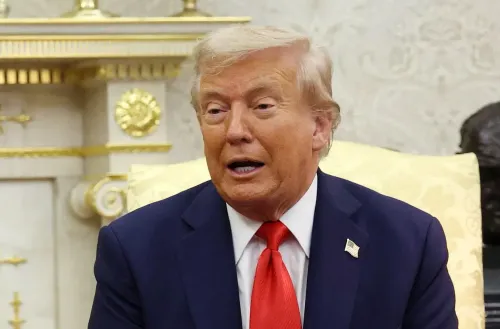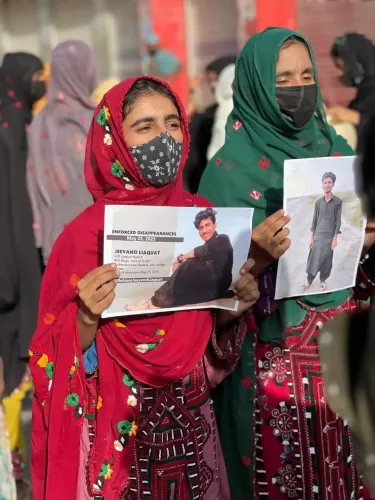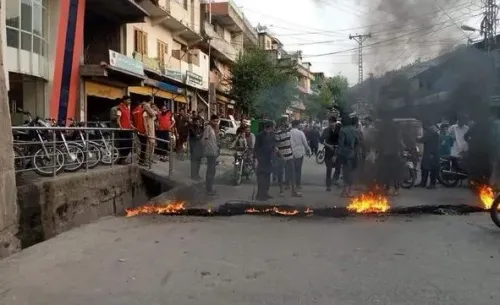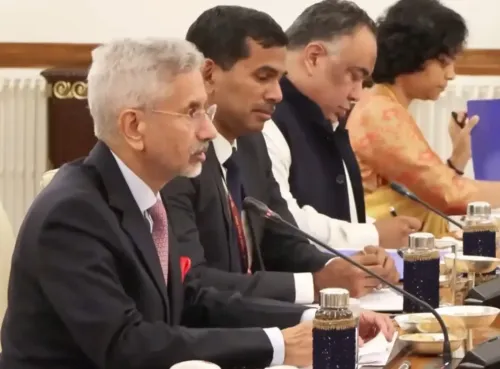What Did PM Modi Discuss During His China Visit for the SCO Summit?
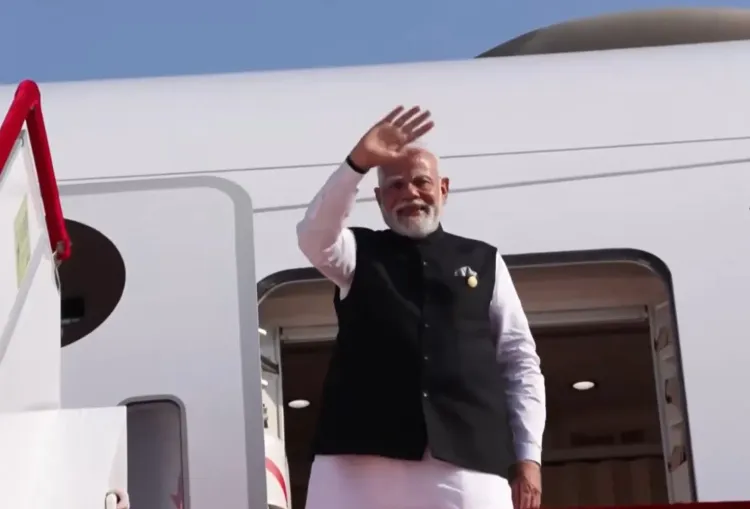
Synopsis
Key Takeaways
- PM Modi's visit to China marks a significant diplomatic engagement.
- India's emphasis on security and counter-terrorism was highlighted.
- Strengthening connections through the SCO framework is a priority.
- Initiatives like the Chabahar port were endorsed for regional development.
- The Tianjin Declaration reflects a unified approach among member countries.
Tianjin (China), Sep 1 (NationPress) Prime Minister Narendra Modi has departed for New Delhi following a two-day visit to China. During this trip, he engaged in several crucial discussions with global leaders, including Chinese President Xi Jinping and Russian President Vladimir Putin, and attended the Shanghai Cooperation Organisation (SCO) Summit on Monday.
In a statement on X, Prime Minister Modi said, "Wrapping up a constructive visit to China, where I took part in the SCO Summit and interacted with various world leaders. I also reiterated India's position on significant global matters. My gratitude goes to President Xi Jinping, the Chinese government, and the people for successfully hosting this Summit."
Earlier in the day, PM Modi participated in the 25th Meeting of the Council of Heads of State of the Shanghai Cooperation Organisation (SCO), held in Tianjin. The Summit facilitated fruitful discussions regarding SCO development strategies, reforms in global governance, counter-terrorism measures, peace and security, economic cooperation, and sustainable development initiatives.
Additionally, he met with Russian President Vladimir Putin during the Summit, where they explored opportunities to enhance bilateral cooperation across various sectors, including space, trade, security, and culture.
While addressing the Summit, Prime Minister Modi emphasized India's strategy to bolster cooperation within the SCO framework. He pointed out that India aims to pursue greater action under three main pillars: Security, Connectivity, and Opportunity. Stressing the importance of peace, security, and stability for progress and prosperity, he urged member nations to take decisive measures against terrorism in all forms. He highlighted the necessity for united actions against terror financing and radicalization, and thanked member countries for their solidarity following the Pahalgam terror attack, insisting on no double standards when addressing terrorism.
Modi also underscored the critical role of connectivity in promoting development and fostering trust, expressing India's support for initiatives like the Chabahar port and the International North-South Transport Corridor. He mentioned the vast opportunities in fields such as start-ups, innovation, youth empowerment, and shared cultural heritage that should be pursued under the SCO framework. The Prime Minister suggested initiating a Civilisational Dialogue Forum to enhance people-to-people connections and cultural appreciation.
Furthermore, Modi conveyed his endorsement of the group's reform-oriented agenda, welcoming the establishment of centers to tackle organized crime, drug trafficking, and cyber security. He urged the group to adopt a similar reform approach for multilateral institutions, including the United Nations.
In closing, Modi expressed gratitude to President Xi Jinping for his generous hospitality and congratulated him for successfully organizing the Summit. He also congratulated Kyrgyzstan for assuming the next SCO Presidency. At the end of the Summit, the member countries adopted the Tianjin Declaration.

